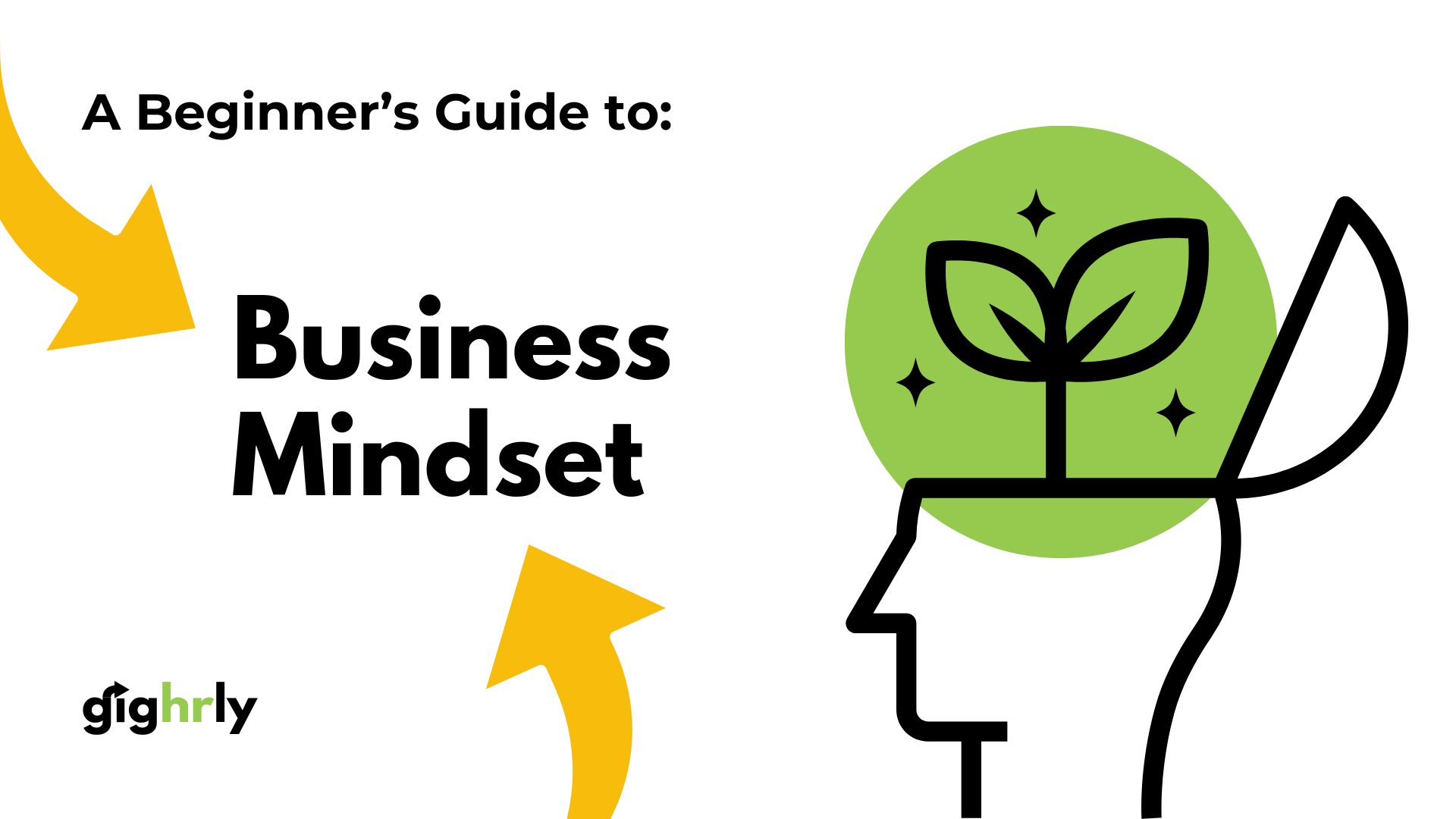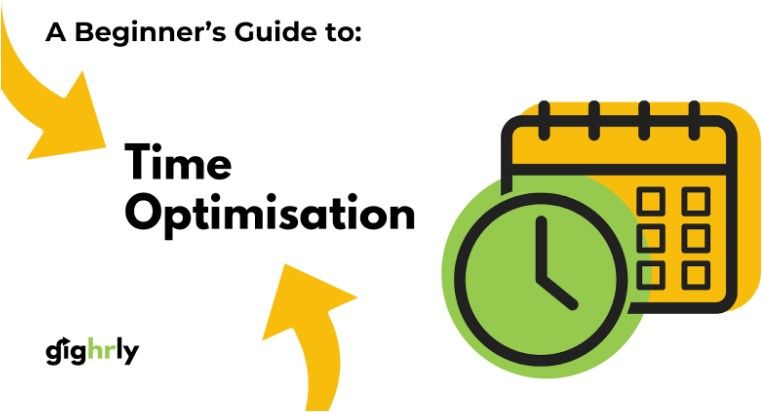
What does it take to think like an entrepreneur?
Making the jump to working for yourself can feel super overwhelming at times. There's so much to lose and so much to think about. What if it all goes wrong? It can be so tempting not to take the leap at all.
Well, here's the thing - with the right mindset, you can most definitely approach these challenges with the confidence to help you get your wins in. And building an entrepreneurial mindset is the way to go if you're seeking to go it alone, and generate multiple streams of income that will help you ride the feast and famine rollercoaster like a 'Rolls Royce' knife blade cutting through butter!
Building an entrepreneurial mindset though isn't just about thinking strategically, it’s also about learning as you go (or indeed as you grow) and building the 'grit factor' that will help you through the rough times and drive you to your goals.
In this Knowledge Nugget guide, we’ll walk you through the key elements of building an entrepreneurial mindset, with some tips and insights that can help you stay focused, adaptable, and resilient in your own entrepreneurial journey, whatever that looks like. So whether you're a contractor looking for project gigs and want to develop a side-hustle, you want to become a published author, or you're an independent looking to gain your first or more clients, have a think through which of these tips may apply best to you.
1. Build a Growth Mindset
Nailed by Carol Dweck in her book 'Mindset: How You Can Fulfil Your Potential', a growth mindset is all about believing your abilities aren’t set in stone - they can grow and evolve with a little effort, curiosity, and lots of practice and persistence! Whether you're tackling a new project or navigating a setback, if you view challenges as opportunities to learn and grow you'll continuously improve, increase your confidence, and innovate your way through obstacles to reach places you never knew you could.
gighrly Tip: Celebrate progress, not perfection, and take action. Because each step forward, no matter how small, is a victory. Marginal gains is the way to go!
2. Stay Agile and Learn Constantly
The business landscape is constantly evolving - algorithms change, markets shift and macro factors such as regs, economics and governments have a happy knack of changing the status quo. So the ability to adapt is key to staying competitive in your market. What does this mean for freelancers?
Well, being agile means staying open to new ideas and adjusting your own personal strategies wherever necessary (and that includes pivoting). It also means embracing change instead of fearing it (you know that old adage of 'feel the fear and do it anyway' - well, do just this).
Why bother? It's easy to get comfortable with what you know, but if you're agile in your mindset and learning approach it will help you stay ahead of the curve, make you even more relevant, and above all, ready for anything!
gighrly Tip: Stay curious and proactive - keep an eye on trends, listen to feedback, take action and always be ready to pivot if needed. Build focused learning time into your weekly diary using time blocking, find a coach, mentor or community that can help, and above all, don't feel guilty for investing time (and money) in your personal growth.
3. Bounce Back from Setbacks
Everyone in business faces challenges at some point, whether it’s a tricky or dry market, a disappointing product launch, or an unexpected setback. Resilience is what helps you bounce back stronger each time.
It’s about not letting failures define you, but learning from them, adjusting your approach, and keeping your long-term vision in sight. Combined with a growth and agility mindset, it's what helps you to pick yourself up and go again!
gighrly Tip: Focus on solutions, not problems. When in the midst of a setback, ask yourself, “What can I learn from this?” and think about how you can turn it into an opportunity to grow. And from speaking with countless solopreneurs, this really does work!
4. Focus on Your Impact, Not Just the Money
High-performing freelancers and business owners are driven by more than just a desire to make money. Often driven by a purpose to make a difference to or create value for their clients, they focus on solving problems, meeting their audiences' needs, and making a positive impact.
If you do this too, your business will naturally attract loyal customers and partners. When you centre your business around creating real value, success will follow. It's a key component of your personal brand too and what determines your reputation!
gighrly Tip: Ask yourself: “How does what I do improve someone’s life or drive value in their business?” and let this guide your decisions.
5. Keep Your Clients at the Heart of Everything You Do
Sounds obvious but often overlooked. Understanding your customers’ needs, challenges, and goals is fundamental to building a thriving business of any size. So, go beyond purely passion projects, stay customer-focused and you’ll be able to build stronger relationships, increase loyalty, and ensure you’re always delivering something that meets (or exceeds!) their expectations. After all, a happy customer is your best business asset.
gighrly Tip: Ask your customers or your target customers for feedback on what their problems or expectations might be - whether it’s through direct feedback, surveys, or social media. Insights like these are gold and will help you craft a proposition that is meaningful to them!
6. Be Bold, Be Calculated
So, big ideas, an agile mindset and the grit and determination to take action are key to gaining those wins. But what about the risks?
Whether it's taking the leap to leave employment, saying 'no' to a gig offer, pivoting your proposition, launching a new product or service, entering a new market, or making a big investment, the way you look at risk should be baked into your entrepreneurial journey.
To be good at managing, you should seek to understand the risk first, weigh up the potential rewards, and make informed decisions to proceed with caution, amend your plans, or withdraw from your course of action altogether.
gighrly Tip: To minimise any risk, test the water with people you already know and trust. Launch pilot projects, or if you're a freelancer, only commit to short-term assignments if you're at all unsure about a client or brief.
7. Think Big, Start Small
Ah, this is an overused phrase, but it's so true. It can be tempting to think big and only big - this can however lead to paralysis and overwhelm. So, it's important to take action to hit those short-term goals as well as keeping your eyes on the bigger picture. Having a clear vision keeps you focused on what matters most, but it's the sum of all the small steps that are going to get you there! 'The 12-Week Year' by Brian P Moran and Michael Lennington is a great book for focusing the mind on achieving those short term goals!
gighrly Tip: Break down your long-term vision into achievable 12-week milestones. This will keep you motivated and on track to success. And don't try to squeeze too much in too soon either - remember those marginal gains? 😉
In a Nugget:
- The mindset you cultivate will shape the business you end up with.
- Don't be afraid to change course, pivot or withdraw after assessing the risks.
- Stay focused, stay curious, and keep pushing forward by taking small steps.

Follow us
Copyright of gighrly TM © a trading name of Nu Leaf Ltd. Company no 07001744


